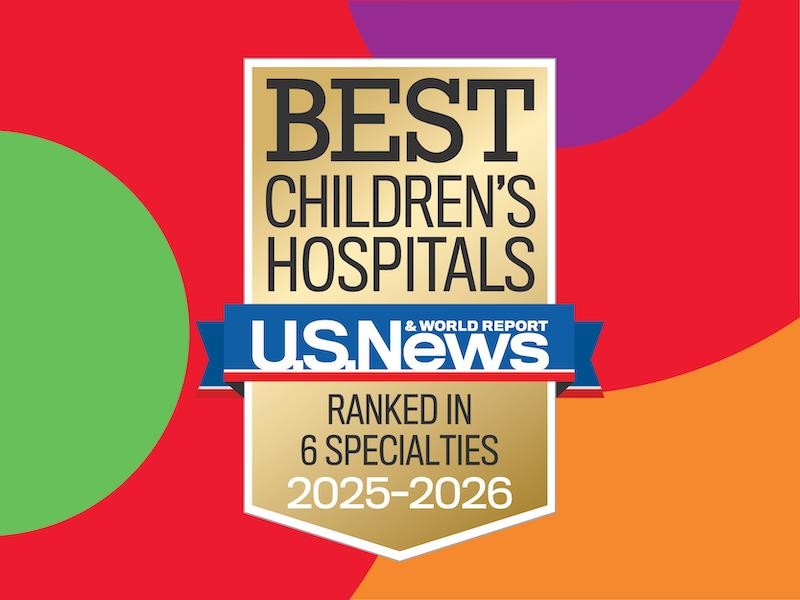
When your baby’s health is on the line, you want the best care possible, and your baby deserves it. That’s why Phoenix Children’s established the Bronchopulmonary Dysplasia Program. We offer the most comprehensive care program for bronchopulmonary dysplasia (BPD) in Arizona.
When a baby’s lungs aren’t fully developed, the baby may develop BPD, a chronic lung disease. Most infants with BPD will need breathing assistance at birth and often for weeks or months afterward. Thanks to modern technology and care, most of these babies now fully recover, but some may have long-term breathing issues.
BPD affects not only your baby’s lungs but is also associated with poor growth and development and family stress. Multidisciplinary care — with different specialists working together — can make all the difference in your baby’s health, now and into the future. At Phoenix Children’s, our team approach ensures both you and your baby are in caring, competent hands.
Highlights of our program include:
- Continuity of care. Our dedicated BPD Program ensures a seamless transition from inpatient care at the hospital to outpatient care after your child goes home. You’ll know what to do and where to turn if your child needs care.
- Major referral center. It’s the only program of its kind in the region, and physicians refer babies to Phoenix Children’s from throughout the region and beyond.
- Multidisciplinary expertise. Our BPD specialists are highly respected experts in a wide range of fields, and research shows this collaboration can help improve outcomes. Our neonatology, pulmonology and cardiology teams are all ranked specialties by U.S. News & World Report Best Children’s Hospitals.
- Innovating care. We are members of the multicenter BPD Collaborative, committed to improving care and outcomes for babies who develop severe BPD.
Care for Your Baby and Support for You
Babies with BPD are some of our most vulnerable patients. Most will need neonatal intensive care, often for several weeks. When they go home, they may still need breathing support. They may have trouble feeding and need nutritional and developmental support.
That’s why we at Phoenix Children’s established our BPD Program: We better serve these babies and families and ensure they have the care, support and resources they need. It’s the first and only program of its kind in in the Southwest U.S.
If your baby has BPD, all the care and services your baby might need are available here, from the moment your baby is born until they are healthy and strong enough to breathe without assistance, and growing and developing normally.
When your baby is in our neonatal intensive care unit (NICU), you can rest assured we are doing everything possible to keep them comfortable, breathing and getting stronger. After your baby goes home, we’re here for you too, with support, counseling and guidance to help you learn how to best care for your baby — because every baby deserves the best possible start in life, and every family deserves to feel confident and supported during this critical time.
PLEASE NOTE: Babies with BPD are at high risk for serious illness from COVID-19, respiratory syncytial virus (RSV) and other respiratory illnesses. For your baby’s protection — and yours — we offer virtual visits for routine care and can solve many issues with equipment or care without requiring a trip. If an in-person clinic visit is needed, we’ll take every precaution to prevent any exposure and ensure your baby’s health and safety.
Expert Care
The interdisciplinary team at the Bronchopulmonary Dysplasia Program at Phoenix Children’s provides complete care for babies with bronchopulmonary dysplasia (BPD). These babies are often born premature, with lungs that are not fully developed. They often require neonatal intensive care, breathing assistance and other services. Our goal is to provide family-centered care with parents involved in decision-making.
Our team includes professionals who are experienced in working with babies and families affected by BPD, including:
- Cardiologists with specialization in pulmonary hypertension
- Case managers
- Developmental specialist
- Dietitian
- Lactation consultant
- Neonatologists/neonatal nurse practitioners
- Nursing
- Occupational therapist
- Otolaryngologists (ear, nose, throat) — specialists in airway evaluation and treatment, such as tracheostomy placement and care
- Pharmacist
- Physical therapist
- Pulmonologists/nurse practitioners
- Respiratory therapists
- Social workers
- Speech/language pathologist
- Surgeons (gastrostomy tube [G-tube] placement)
- Other consultants as needed

Nationally Recognized Care
Since 2010, U.S. News & World Report has ranked Phoenix Children’s among the nation’s “Best Children’s Hospitals."
We promote growth, healing and development for infants and children with bronchopulmonary dysplasia (BPD) by providing comprehensive, collaborative and interdisciplinary care. We use a family-centered care model to ensure the best outcomes for both children and their families in inpatient and outpatient settings.
We aim to be the leading regional center for BPD in the Southwest, nationally recognized as a center of excellence for BPD clinical care and research, and for our contributions to advancing the understanding and management of BPD.
Quality
Phoenix Children’s Bronchopulmonary Dysplasia Program provides the best, most complete care possible for some of our most vulnerable patients. We’re the first comprehensive care program for bronchopulmonary dysplasia (BPD) in Arizona.
Babies with BPD need a lot of care, and their families need a lot of support. So, we’ve pulled together all the specialists, services and technology your baby might need, all under one roof.
All our team members — physician specialists, nurses, dietitians, social workers and other professionals — are experienced in caring for babies with BPD and other health issues. We’re committed to your baby’s health, well-being, comfort and future.
And we’re here for you with information, guidance and support, so you can feel confident taking care of your baby at home.
Improving Care Outside Our Walls
The BPD Program provides education and information for physicians, pediatricians and other professionals to increase awareness and improve BPD care. We’re establishing this program as a statewide and regional resource for families affected by BPD and for professionals to work alongside seasoned experts in the field.
We’re committed to research and are part of the Bronchopulmonary Dysplasia Collaborative, a group of institutions dedicated to improving the lifelong outcomes of babies who develop severe BPD. Members of the BPD Collaborative share data, launch quality improvement initiatives and take part in research protocols that address the most pressing gaps in knowledge to improve BPD care.
Until BPD is no longer a threat to a baby’s health and life, we’re here to serve our community and state and provide complete care and support for babies with BPD and their families.
Additional Resources from the BPD Collaborative:
Logan, JW, Lynch, SK, Curtiss J, Shepherd EG. Clinical phenotypes and management concepts for severe, established bronchopulmonary dysplasia. Paediatr Respir Rev, 2019. 31: p. 58-63.
Abman SH, Collaco JM, Shepherd EG, Keszler M, Cuevas-Guaman M, Welty SE, Truog WE, McGrath-Morrow SA, Moore PE, Rhein LM, Kirpalani H, Zhang H, Gratny LL, Lynch SK, Curtiss J, Stonestreet BS, McKinney RL, Dysart KC, Gien J, Baker CD, Donohue PK, Austin E, Fike C, Nelin LD. Interdisciplinary care of children with severe bronchopulmonary dysplasia. J Pediatr. 2017 Feb; 181:12-28.
Shepherd, EG, Knupp AM, Welty, SE, Susey, KM, Gardner, WP, Gest, AL. An interdisciplinary bronchopulmonary dysplasia program is associated with improved neurodevelopmental outcomes and fewer rehospitalizations. J Perinatol, 2012. 32(1): p. 33-38.
Guaman MC, Gien J, Baker CD, Zhang H, Austin ED, Collaco JM. Point Prevalence, Clinical Characteristics, and Treatment Variation for Infants with Severe Bronchopulmonary Dysplasia. Am J Perinatol. 2015; 32:960-967. PMID: 25738785
Curtiss J, Zhang H, Griffiths P, Shepherd EG, Lynch S. Nutritional Management of the Infant with Severe Bronchopulmonary Dysplasia. NeoReviews. 2015; 16: e674-e679.
Locations

